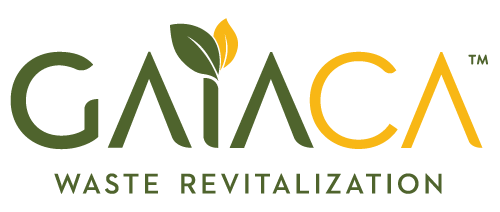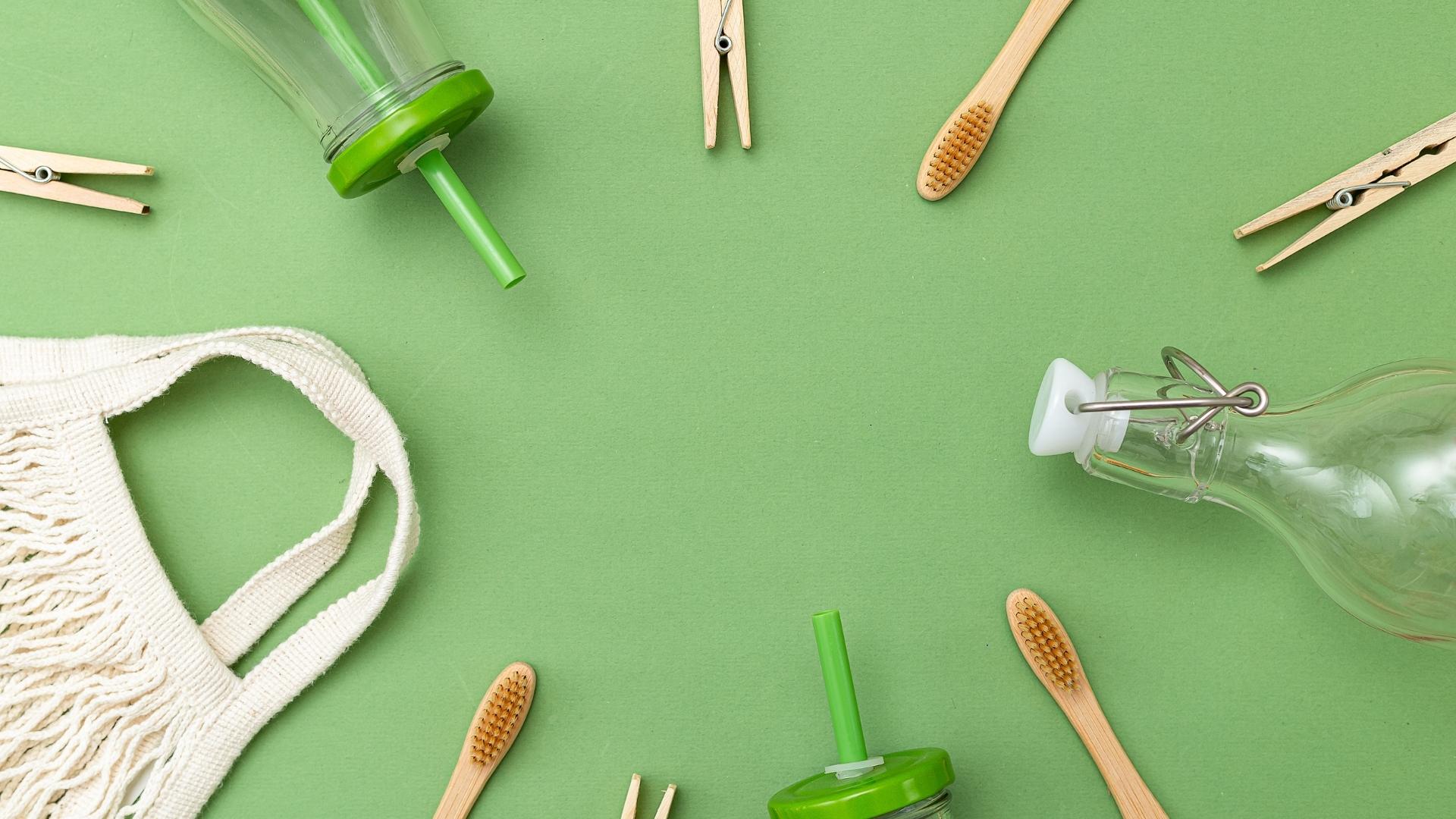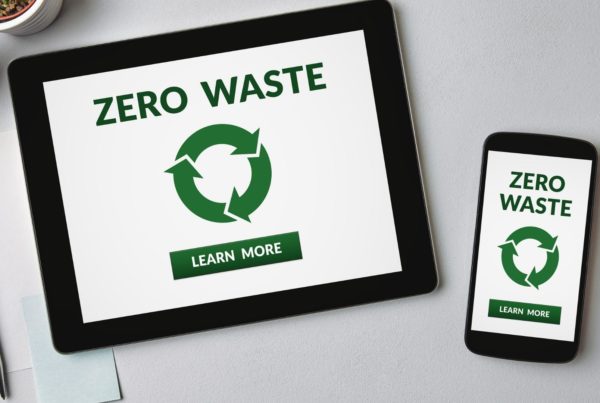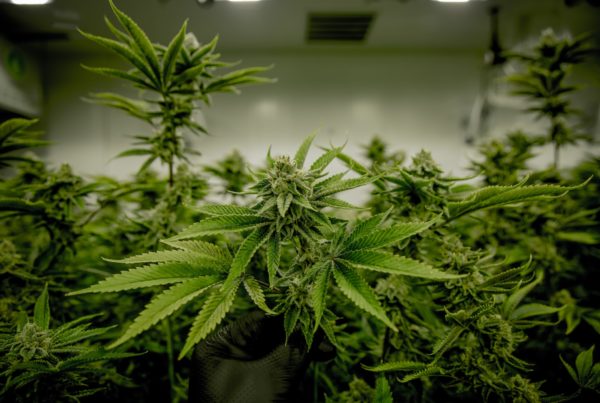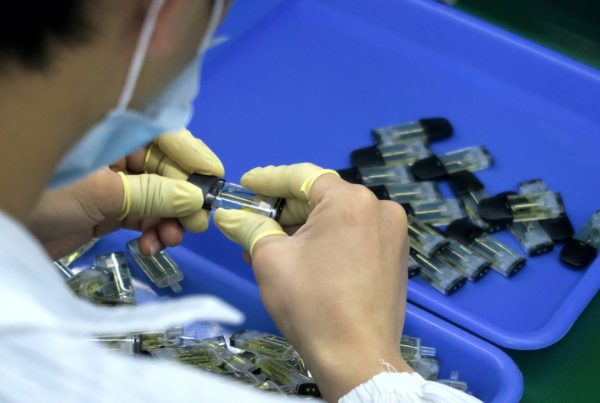Sourcing reusable products to reduce waste is not just an individual or domestic concern—it applies to businesses too. With increasing consumer awareness about the impact of their purchases, using and manufacturing reusable products to reduce waste is a smart decision not only for the planet but also for your bottom line.
Employee-Generated Waste
The easiest place to start when it comes to finding reusable alternatives in a commercial context is the waste generated by employees on a daily basis. As an organization, you can reduce your waste footprint almost immediately by providing reusable options and rewarding employees for bringing reusable products to work.
Vending Machines
Vending machines are ubiquitous in workplaces. In place of vending machines filled with plastic water bottles, install drinking-water taps around the facility that employees can use to fill their own reusable water bottles or water glasses. A dishwasher can be used to wash used water glasses and coffee mugs with a minimum of water and time.
Take-Out Food and Beverages
Company cafeterias, restaurants, and coffee shops are another major source of waste that can be tackled head-on by swapping disposable products for reusable ones.
- Coffee cups – Sell reusable coffee cups, and offer a discount for employees who make a purchase with their own portable beverage thermos. Encourage “dine-in” coffee and/or have coffee delivered to employees’ desks in a ceramic cup with a heat-proof silicone drinking lid.
- Plastic straws – Replace plastic straws with reusable straws for dine-in orders—either metal or food-grade silicone straws. Sustainably sourced paper straws can easily be provided with beverages ordered to-go.
- Paper napkins – Offer cloth napkins to employees who dine in, and encourage employees to bring a small hand towel or cloth napkin to work for their own personal use.
- Plastic cutlery – Give employees enough time to eat a dine-in lunch, and encourage employees to bring their own cutlery to work if they plan on getting take-out.
- Styrofoam containers – Encourage employees to bring containers to work for ordering lunch or even to bring a packed lunch in their own washable container.
Staff Fridge
Plastic wrap and aluminum foil are routinely used in staff fridges for covering leftovers and catered snacks. However, bee’s wrap can be used for the same purpose and is just as effective for conserving food.
Bee’s wrap is a wrap made from organic cotton fused with sustainably harvested beeswax and jojoba oil. After use, simply wash with water and soap, air dry, and reuse.
Paper Towels
Paper towels are used in businesses for everything from cleaning and polishing to drying employees’ hands in the bathroom. For cleaning, paper towels can easily be replaced with old clothing cut into rags and laundered regularly.
Dishcloths can be used as reusable paper towels in the kitchen, and hand towels—washed regularly—can be used in the bathroom. As many businesses are trying to avoid the spread of germs, a safer option would be to ask employees to bring a small hand towel to work for their own personal use.
Referred Waste
Referred waste is the waste that companies—particularly manufacturing companies—pass on to their customers. While this (usually plastic) waste doesn’t add to your business’s landfill bill, offering reusable options will greatly enhance your PR with customers and could reduce packaging costs in the long term as well.
The most classic example of reusable packaging is the iconic glass Coca-Cola bottle that is returned, sterilized, and used again. Another example is the cookie tin, which while non-returnable, can be used again and again by families for storing various things.
Many industries could follow a similar model by allowing vendors to receive empty glass and metal recipients and come back to pick them up for cleansing and reuse. In the cannabis industry, for example, many vape pen manufacturers place vape pen recycling boxes in dispensaries as part of their cannabis waste management plan.
Industry-Specific Waste Alternatives
Reusable alternatives to industrial waste are best broken down by category, as the solutions will vary greatly from one industry to the next. For example, a commercial kitchen will have very different needs and challenges from a factory or school when it comes to finding reusable products to reduce waste.
Agriculture
Much of the waste from agriculture comes from disposable items like gloves and masks as well as non-biodegradable containers and bags containing fertilizer and pesticides. To reduce waste:
- Use washable, reusable gloves and face coverings.
- Make your own compost and fertilizer from farming byproducts via waste revitalization.
- Make your own pesticides from non-toxic ingredients when possible.
- Find out if you can return pesticide and fertilizer containers for sterilization and reuse (please note that hazardous waste transportation laws may apply to containers with toxic residue).
- Buy organic matter in reusable or compostable hessian bags when possible.
- Transport produce in reusable containers such as wooden crates.
- Use cardboard boxes instead of plastic produce bags for farm-direct sales.
Hospitality Industry
Restaurants, diners, coffee shops, bakeries, and hotels produce waste in the front of house as well as in the kitchen. Introducing reusable alternatives can drastically reduce waste:
- Plastic bags – Use reusable grocery bags instead of plastic grocery bags when buying ingredients for cooking and baking. If the quantity of the purchase is too great for reusable shopping bags, you can also use cardboard boxes or wooden crates. For sales, there are sustainably sourced paper bags and boxes available.
- Disposable gloves – Depending on the company policy, disposable gloves can often be replaced with excellent hand hygiene (i.e. washing and sanitizing) and keeping fingernails short. Otherwise, consider providing cooks and wait staff with thin, well-fitted washable gloves.
- Aluminum foil and parchment paper – A reusable cooking sheet or silicone bakeware can often eliminate the need for aluminum foil and parchment paper.
- Plastic wrap – For food storage, bee’s wrap can be used in place of plastic wrap.
Cleaning Industry
The cleaning industry relies on non-reusable products in the form of cleaning chemicals and water, some of which may be subject to chemical waste disposal laws. However, reducing waste is still an important concern:
- Paper towel – Paper towels used for cleaning can often be replaced with rags.
- Sponges – Sponges can often be replaced with clean rags.
- Spent rags – Spent rags can usually be sent to a fabric recycler and turned into insulation.
- Chemical containers – In-house preparations with essential oils can be used for some cleaning applications (and the containers reused).
Commercial or Industrial Laundry Room
Laundry rooms produce waste in the form of dryer sheets and single-use plastic bags for laundered clothing. To reduce waste, use wool dryer balls in place of dryer sheets and fabric softener. Items can be returned in reusable bags that are included in the price of laundering, and the cost of the bag can be refunded upon return.
Automotive Industry
The automotive industry can reduce waste with used oil recycling. Used motor oil can be filtered and used over and over again and eventually recycled through a used oil recycler, purified, and resold. Reusable rags used for polishing and buffing can eventually be stripped and turned into insulation.
Pharmaceutical and Hygiene Industry
The pharmaceutical industry has a huge opportunity in terms of reusable product manufacturing. While things like needles can’t be reused (this is one of the challenges of medical waste), many other products can be. For example, the plastic part of vaccine syringes can easily be reclaimed and recycled.
In the hygiene industry, high-quality, easy-wash reusable cotton rounds, reusable cotton swabs, cloth diapers, moon panties, and washable menstrual pads are gaining traction among environmentally conscious customers. If possible, offer the corresponding laundry detergent or soap (in a returnable container) as a win-win for customers and manufacturers.
Education Environments
Schools and colleges go through large quantities of paper, whiteboard markers, and whiteboard erasers—not to mention the amount of cafeteria waste generated on a typical school day. Fortunately, it’s possible to find low-cost reusable products to reduce waste:
- Paper, whiteboards markers, and whiteboards – Younger students can often use individual blackboards, chalk, and cleaning rags for practice exercises.
- Paper essays – Older students can often type essays and submit assignments digitally and complete most of the required readings online.
- Cafeteria waste – As with the workplace examples given earlier, students can be given washable lunch trays, washable cups, and washable silverware instead of disposables.
Ways Your Company Can Benefit from Finding Reusable Products to Reduce Waste
While the volume of general (non-hazardous) waste produced in an industrial setting usually results in higher fees rather than fines or penalties, trends are heading toward waste prevention and reduction. The EPA, for example, has developed a waste reduction model (WARM) tool that businesses can use to calculate their potential greenhouse gas emissions reduction.
From the customer side of the equation, 75% of millennial survey respondents now take sustainability into consideration when making a purchase, demonstrating the importance of waste reduction from a marketing point of view. Not only could you save money by replacing disposable items with reusable ones, but generating less waste (even zero waste) is likely to improve your earnings as well.
Take a Step
Eliminating waste in commercial settings is a process. As suggested, the best place to begin is usually with employee waste (such as bringing a reusable water bottle to work), followed by replacing non-reusable packaging with returnable or biodegradable packaging, and ultimately reducing waste created in the act of providing goods and services.
It can take a little adjusting at the start, but finding reusable products to reduce waste can have a significant positive impact on your public image and reduce landfill fees and operating costs. In time, a shift to reusables can pay excellent dividends.
